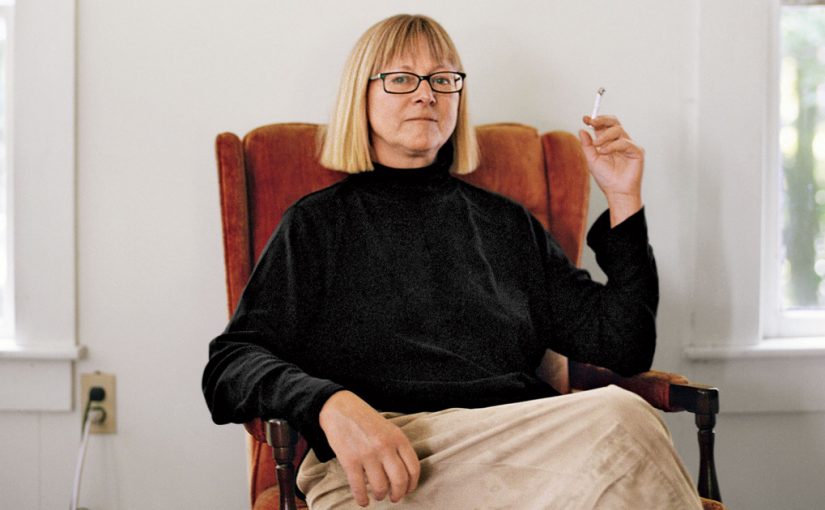Helen DeWitt’s struggles with the publishing industry have been well documented. She famously battled the copy editors of her first publisher regarding the correct typesetting of certain passages in her novel The Last Samurai (2000), which had pages of classical Greek and also Japanese characters (hiragana, katakana and kanji).
In a 2016 Vulture profile of DeWitt, Christian Lorentzen documented how the bankruptcy of her first publisher, and the subsequent lawsuits over “accounting errors,” kept her second novel Lightning Rods (2011) from being published for 12 years.
“Lightning Rods, finished in July 1999, was then stuck in limbo after her publisher, Talk Miramax, folded,” Lorentzen wrote. “When it did finally appear, from New Directions in 2011, it garnered a legion of devoted readers too young to have read The Last Samurai before it went out of print.”
What many people don’t know is that DeWitt anticipated the typesetting problems and had decided to hold The Last Samurai back. Her strategy was to first publish Lightning Rods, gain the necessary clout to protect her vision for The Last Samurai, and then go from there.
In a lengthy series of Tweets on Dec. 29, DeWitt outlined the background of this drama, and how the editor’s pushing The Last Samurai at the 1999 Frankfurt Book Fair–and the subsequent sensation the book engendered there–forced her hand, and foiled her initial publishing plans.
Since The Last Samurai had a lot of Greek & Japanese, I knew it wd be technically tricky & wanted to publish other books until I knew enough to protect it, or else find a publisher who wd look after it. /9
— Helen DeWitt (@helendewitt) December 29, 2019
Wanted to publish Lightning Rods first, use money to finish other books in progress, THEN publish Samurai from position of strength, instead the editor who was wowed by Samurai in 1999 was EXACTLY THE KIND OF PERSON who cd not be trusted w the book, /10
— Helen DeWitt (@helendewitt) December 29, 2019
DeWitt then Tweeted how rights for The Last Samurai were sold to 19 other publishers, all of whom took “dodgy shortcuts” when it came to handling the typesetting. The ensuing efforts to protect the book, and battle her former publisher, took a massive psychological toll on DeWitt.
so trying to protect the book destroyed my sanity – was distraught bc all other books wiped out, & tho agents said they cd get me $1 million for a new deal did not like author at risk of suicide (“Why wd you commit suicide? You’ve got everything you wanted!”) & /12
— Helen DeWitt (@helendewitt) December 29, 2019
DeWitt ends the Tweet series by picking up on a thread earlier in the sequence, where she remarks how Steve Jobs’ background and personal interests affected what fonts went into Apple computers, and how technology–often invisible to writers, and often seen in a neutral or positive manner–can actually dis-empower artists.
did not see this as amazing opportunity, s.o. who put a stop to systematic disempowerment of author cd unleash energy to finish many new books. Some of the disempowerment is embedded in technology, so invisible to people w no interest in tech /13
— Helen DeWitt (@helendewitt) December 29, 2019
